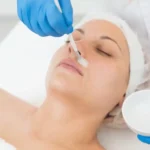THE WHAT? L’Oréal Middle East has seen an upsurge in online sales of 750 percent since 2018, which is said to be driven by a D2C e-commerce and e-distribution partnership with Dubai-based CNNB Solutions, according to Trade Arabia.
THE DETAILS Since the start of the partnership the company has reported an increase in average order value of 12 percent, a 17.5 percent improvement in delivery rate and a 235 percent increase in customer lifetime value (CLV) across the selected brands.
CNNB Solutions has been tasked with developing and optimizing websites, inventory management, marketplace negotiation, stock planning and warehousing, and delivery logistics via partner Aramex. This has been rolled out across UAE, Oman, Bahrain, Kuwait and Saudi Arabia.
THE WHY? The partnership has helped to accelerate the already soaring demand for e-commerce, giving L’Oréal Middle East further opportunities to tap into the lucrative sales avenue.
Mehdi Moutaoukil, Chief Marketing Officer at L’Oréal Middle East said: “We are always looking for new ways to innovate and serve our consumers in the most efficient way. With growing demand for convenient online shopping, CNNB Solutions has streamlined our approach across the GCC region, putting the consumer experience at the forefront of our strategy. The results have been hugely successful in terms of sales growth and consumer satisfaction, delivering a win-win for our business and stakeholders.”
Aesthetic medicine products are developed and regulated to meet stringent safety and efficacy standards. They are typically administered by trained healthcare professionals such as dermatologists, plastic surgeons, and specialized nurses in clinical settings. These products aim to provide effective solutions for cosmetic enhancement, skin rejuvenation, and overall aesthetic improvement, contributing to both physical appearance and self-confidence.
Key categories of aesthetic medicine products include:
-
Injectables: This category includes products such as dermal fillers, botulinum toxins (e.g., Botox), and collagen stimulators. These injectables are used to smooth wrinkles, add volume, and improve facial contours.
-
Skin Rejuvenation Treatments: Products like chemical peels, microdermabrasion systems, and laser devices are used to improve skin texture, reduce pigmentation irregularities, and enhance overall skin tone.
-
Skincare Products: These include medical-grade cleansers, moisturizers, serums, and topical treatments containing active ingredients like retinoids, antioxidants, and growth factors. They are formulated to address specific skin concerns such as acne, aging, and hyperpigmentation.
-
Hair Restoration Products: Medical treatments and products designed to promote hair growth and treat conditions such as male and female pattern baldness.
-
Body Contouring and Fat Reduction: Devices and products used for non-surgical body sculpting, such as cryolipolysis (cool sculpting) devices and injectable lipolytics.
-
Cosmeceuticals: High-performance skincare products that bridge the gap between cosmetics and pharmaceuticals, often containing potent ingredients with proven clinical benefits.
-
Wound Care and Scar Management: Products like silicone sheets, gels, and advanced wound dressings used to improve healing and reduce the appearance of scars.





